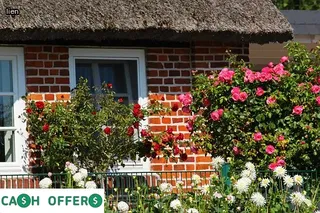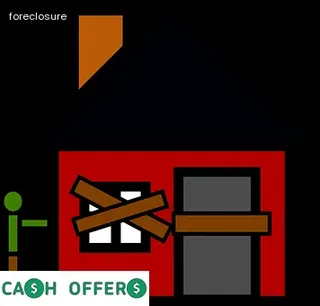In South Carolina, the Code of Laws dictates how court-ordered property sales are to be conducted. This code provides a comprehensive outline of how buyers and sellers should interact when dealing with such a sale.
It outlines the processes for submitting an offer, making an agreement and completing the sale. Additionally, it explains the legal requirements that must be met before a sale can take place, as well as what type of documentation is needed in order to properly execute the sale.
Furthermore, it outlines various types of liens that may be associated with a property being sold at auction, as well as how these liens should be handled during the sale process. Lastly, it explains how appeals can be made if either party is not satisfied with the outcome of a court-ordered auction.
In short, understanding the South Carolina Code of Laws is essential for those looking to purchase or sell real estate through court-ordered auctions in South Carolina.

The history of court-ordered property sales in South Carolina dates back to colonial times, when state laws mandated the dissolution of estates and the sale of assets to satisfy debts. Over the years, the law has evolved to reflect current needs and trends in real estate transactions.
Today, court-ordered property sales are often used as a tool for creditors to recover unpaid debt from a borrower. In some cases, it is also used for other purposes such as liquidating assets to pay off taxes or other liabilities.
In most cases, these types of sales are conducted by a court-appointed trustee who will oversee the process and ensure that all parties involved are given an opportunity to bid on the property. This system helps to ensure fair market value is obtained for any sale that takes place while giving buyers and sellers an equal chance at purchasing or selling property in South Carolina.
In South Carolina, a court-ordered property sale occurs when a homeowner has defaulted on their mortgage and the lender files a foreclosure lawsuit to regain the property. The court will then order a public auction of the property where buyers can bid on it in order to purchase the real estate.
The process for this sale involves several steps. First, the court must issue an order of sale that appoints a Special Referee to conduct the auction.
This order also specifies when and where it will take place, as well as any additional rules and regulations associated with attending or bidding on it. In addition, prospective buyers must submit written offers to purchase the property at least ten days before the sale date.
Finally, at least one day prior to the sale, potential buyers are required to deposit an amount determined by law into escrow with the clerk of court in order to be eligible to participate in bidding. On the day of the auction, only those who have deposited money are allowed to bid for the property and whoever bids highest wins ownership of it.

In South Carolina, court-ordered real estate sales are incredibly complex and require a great deal of understanding in order to be successful. The first requirement is that all potential buyers must be registered with the court prior to the sale taking place.
Buyers must also provide financial information including proof of funds or a mortgage pre-approval letter. Additionally, any bids received must be accompanied by a deposit that is typically five to ten percent of the bid amount.
After the sale has been approved by the court, it is important for buyers to understand that there may still be liens or other encumbrances on the property which will need to be addressed before title can be transferred. Furthermore, closing costs are typically paid by the buyer and sellers may not receive any proceeds from the sale until all court-related fees have been paid in full.
It is essential for buyers and sellers alike to fully understand South Carolina's court-ordered real estate sale process before entering into any transactions.
When it comes to court-ordered property sales in South Carolina, there are a variety of potential outcomes that buyers and sellers should be aware of. A buyer may come away with a great deal on a property they would not have been able to purchase otherwise, while the seller could face financial losses from selling below market value as set by the court.
Parties involved may also experience reduced access to their rights, such as the right to appeal or challenge the court's decisions. The outcome of these sales is ultimately determined by the court and can range from favorable for both parties involved to potentially harmful for one or both sides.
Buyers and sellers should always understand the risks associated with a South Carolina court-ordered sale before making any commitments or agreements.

When a property is sold in South Carolina through a court-ordered sale, it is important for buyers and sellers to understand the tax implications of such a transaction. The implications vary depending on the type of property being sold and the circumstances surrounding the sale.
Generally, one should be aware that taxes will need to be paid by either the buyer or seller, or both. In some cases, if the property was originally acquired with a loan, the loan holder may have additional obligations related to taxes on their end.
Furthermore, any capital gains realized by either party must be reported and taxed accordingly. If a seller has already paid taxes on their home during its ownership period and then sells it through a court-ordered sale, they may still need to pay additional taxes upon completion of the sale.
It's important for buyers and sellers alike to consult with an accountant or tax professional when considering a court-ordered sale in order to ensure that all applicable taxes are accounted for prior to closing.
When a lien is placed on a South Carolina property, the owner must pay off any outstanding debts or mortgages before the title can be transferred. In some cases, the lien may be placed by a creditor such as a bank or other financial institution to secure repayment of an unpaid debt.
If the debt is not paid, the creditor may seek to foreclose on the property. This involves taking legal action which could result in the sale of the property at public auction.
Property owners should be aware that different laws and regulations apply to liens and foreclosures in South Carolina and should seek legal advice if they find themselves in this situation. In addition, buyers and sellers should also understand that court-ordered sales are subject to specific rules and procedures which must be followed by both parties involved.

When it comes to a court-ordered sale in South Carolina, the effect of bankruptcy proceedings can have a major impact on the process. A bankruptcy filing can be initiated by either the buyer or seller, and it will put an automatic stay on any pending legal action related to the property until the case is resolved.
This could mean that the sale process stops completely while the bankruptcy is ongoing, which would leave potential buyers and sellers in limbo with no resolution in sight. Sometimes, a court-ordered sale may even be reversed if a bankruptcy is filed after its completion.
In addition, certain assets may not be able to be sold due to exemptions allowed under SC state law, further complicating matters for those involved in a court-ordered sale. All of these factors should be taken into consideration when looking at real estate sales involving court-ordered sales in South Carolina, as understanding how these issues affect the process can help buyers and sellers make more informed decisions about their investments.
For those interested in understanding the laws and court-ordered property sales in South Carolina, there are various resources available to help. The South Carolina Code of Laws is an excellent place to start.
It provides a comprehensive overview of all laws related to buying and selling real estate in the state. The Code also includes valuable information on court-ordered property sales, such as how they are initiated and what the process entails.
Additionally, local court websites can provide more specific details about local court orders for property sales. Finally, consulting with a qualified real estate attorney can be beneficial for those who need advice or assistance understanding their particular situation when it comes to a court-ordered sale.

When it comes to understanding a South Carolina court-ordered property sale, one of the most important pieces of information to have is the value of the property. Determining the value of a property in a court-ordered sale can be done in several ways.
The two primary methods are an appraisal and a market analysis. An appraisal is conducted by an independent appraiser who looks at the current condition and features of the property and compares it to similar properties in the area to come up with an estimated value.
A market analysis takes into account additional factors such as current market trends, recent sales prices, and foreclosures in the area to determine an estimated value. Buyers and sellers should also consider any liens or other fees that may need to be paid as part of the sale as they will affect both parties' final costs associated with the transaction.
When navigating South Carolina court-ordered property sales, it is essential to have a professional attorney to guide you through the legal system. A knowledgeable attorney will have an understanding of the applicable state laws and regulations that pertain to these types of transactions.
They will also be able to explain the process and help you determine your rights as a buyer or seller in the transaction. An experienced lawyer can also provide advice on how best to proceed with negotiations and review any documents related to the sale.
Having a professional by your side can give you peace of mind when dealing with such complex matters. Furthermore, they can help ensure that all parties involved respect the terms of the sale agreement and adhere to state laws and regulations.

When navigating the complex world of court-ordered property sales in South Carolina, buyers and sellers may find it beneficial to enlist the help of a realtor. Realtors are experts in the field of real estate and can assist in all aspects of executing a court-ordered sale.
They can provide guidance on how to research a property’s history, draft legal documents, review contracts, negotiate terms with opposing parties, complete paperwork, and coordinate with local courts. Working with a qualified realtor will ensure that all steps are taken properly and that buyers receive fair market value for their purchase.
Additionally, they can alert buyers to potential issues such as zoning restrictions or liens that may be attached to the property. Realtors also have access to listings not yet listed on the open market, allowing them to help buyers find properties that fit their needs and budget.
Sellers benefit from working with an experienced realtor as they can handle much of the required paperwork associated with selling a property through a court order.
When selling a property that has been court-ordered, there are several important considerations to be aware of during the process. From understanding the notice of sale and the rights of both buyers and sellers, to ensuring all aspects of the sale are legal according to South Carolina state law, it is imperative for real estate buyers and sellers alike to have a comprehensive understanding of this type of transaction.
It is also important to understand any taxes or fees that may need to be paid as well as any other outstanding debts or liens associated with the property being sold. Additionally, buyers should make sure they research any potential title issues prior to completing their purchase.
Finally, both parties must agree on an acceptable sales price before finalizing the transaction. Taking into account all these considerations will help ensure a smooth and successful court-ordered property sale in South Carolina.

Open houses and advertising are two of the most effective methods to locate prospective buyers fast when it comes to court-ordered property sales in South Carolina. Advertising can be done through various mediums, such as newspapers, websites, and social media outlets.
Open houses are a great way for real estate buyers and sellers to get a better idea of what the property looks like in person. They also provide an opportunity for buyers to ask questions and get more information about the property from the seller or listing agent.
By utilizing both open houses and advertising, you can maximize your chances of finding qualified buyers quickly so that you can close on the sale as soon as possible.
When it comes to the final negotiation between buyer and seller during a South Carolina court-ordered property sale, there are several important factors to consider. The most obvious is the highest price for which the buyer is willing to purchase the property.
Additionally, both parties must think about what closing costs will be associated with the transaction and who will be responsible for them. Buyers should also be aware of any restrictions that may come with purchasing a property through this type of sale, such as limits on how soon they can resell or rent out the home.
Before entering into a contract, buyers should make sure they understand all of these components and have considered the long-term financial implications of their decision. Sellers should also be prepared to negotiate in order to get the best possible price for their property.
Communication between buyer and seller is key throughout this process; making sure everyone understands each other's expectations will help ensure a successful outcome.

When an accepted offer on a property has been made, there are a few closing procedures that both the buyer and seller must go through in order to complete the sale. It is important to understand these procedures in order to ensure that the sale proceeds smoothly and without any delays.
For real estate buyers and sellers in South Carolina, it is important to familiarize yourself with court-ordered property sales. This includes understanding how to complete the closing process when dealing with these types of sales.
Buyers should be aware of the specific documents needed for closing, such as title certificates, deed transfers and evidence of payment. Likewise, sellers need to be prepared with all required paperwork such as title transfer and deed documentation as well as any other documents related to the sale.
Once this paperwork is completed, both parties can sign off on the agreement and finalize the sale according to court-ordered property sales standards in South Carolina. In addition, buyers may be responsible for covering certain costs associated with closing such as inspection fees or transfer taxes while sellers need to provide proof that they have paid any applicable taxes related to the sale.
Finally, all necessary documents must be filed with local government agencies so that ownership of the property can officially change hands.
When it comes to court-ordered property sales in South Carolina, buyers and sellers must take extra precaution to ensure that the transaction is secure and free from fraudulent activity. It is important for both parties to research any potential red flags before entering into a contract, such as a history of past violations or suspicious documentation.
A good way to protect against fraud is to obtain legal advice from someone familiar with the laws surrounding court-ordered sales in the state. Additionally, all involved parties should conduct a thorough title search and review all relevant documents carefully before signing anything.
Furthermore, buyers should always be aware of any restrictions associated with the property that may be included in the sale. Lastly, both buyers and sellers should never sign an agreement without fully understanding what they are agreeing to; if anything seems unclear or suspicious, it is best to consult an experienced real estate attorney before proceeding.

When it comes to South Carolina court-ordered property sales, buyers and sellers have certain obligations and responsibilities that must be taken into account for a successful transaction. After the sale has been completed, both parties should assess the terms of their agreement and make sure all documents are in order.
It is important to understand the various laws and regulations that govern these types of transactions, such as those related to title transfer, liens, taxes, and insurance. The buyer should also obtain a title insurance policy to ensure they receive full legal ownership of the property.
Furthermore, any outstanding debts associated with the property must be paid off by the seller before it is officially transferred to the buyer. Lastly, both parties should keep detailed records of all documents related to the sale for future reference if needed.
When selling property through a court order in South Carolina, it is important to understand the process in order to maximize profits. One of the most critical steps is to find a qualified real estate lawyer who can review all documents and contracts, ensuring that all necessary steps are being taken.
Working with an experienced real estate agent can also be beneficial, as they will have knowledge of current market trends and pricing information that can help get the highest possible return on the sale. Additionally, researching the property's history and any liens or encumbrances attached to it is essential for avoiding costly delays or complications during the selling process.
Finally, buyers should be aware of any additional costs associated with court-ordered sales such as taxes or other fees that may apply. Being armed with this knowledge can help both buyers and sellers to make informed decisions and ensure they get the best outcome from their purchase or sale.
In South Carolina, property subject to a judgment of court-ordered seizure can include real estate and personal property. Real estate such as homes, land, buildings, and other types of residential or commercial properties may be seized in order to satisfy a court judgment.
Personal property that can be taken includes bank accounts, cars, boats, jewelry, and other similar items of value. The court can also levy wages and garnish tax refunds in order to satisfy a judgment.
It is important for buyers and sellers alike to understand what type of property the court is able to seize so that they are aware of the full extent of their rights when it comes to real estate transactions.

In South Carolina, all heirs must agree to a court-ordered property sale. When an heir of a deceased individual passes away without a will (intestate), the court will appoint an administrator to distribute the estate according to state law.
This means that all heirs must consent to the sale of any real estate in order for it to go through. Even if just one heir objects, the court will not approve the sale unless all parties are in agreement.
In cases where multiple heirs are involved, it is important for real estate buyers and sellers to understand how disagreements about selling can be resolved. It is possible for family members and potential buyers or sellers to negotiate outside of court in order to come up with a plan that works for everyone involved.
However, if any party refuses to agree, they may have no choice but to take their case before a judge who will then make the decision based on what is best for all parties involved.
South Carolina Rule 71 is an important legal guideline that governs the process of court-ordered property sales in the state. It sets out the procedures for initiating such a sale and provides guidelines for buyers, sellers, and courts to follow throughout the process.
In particular, it outlines the steps for filing a petition for a court-ordered sale and specifies how much notice must be provided to those involved in the transaction. Additionally, South Carolina Rule 71 outlines what information must be included in the sale order and how to appeal a judgement if necessary.
Understanding this rule is essential for any real estate buyer or seller who may find themselves engaged in a court-ordered property sale.
The foreclosure process in South Carolina can take anywhere from a few months to several years, depending on the type of loan and the specific circumstances involved. Generally, foreclosures in this state are handled through court-ordered property sales.
To understand how long the foreclosure process may take for a particular situation, it is important to consider all legal requirements and timelines set by relevant statutes. For example, the South Carolina Supreme Court has established that a lender must give at least 90 days' notice before beginning foreclosure proceedings.
Once the lender begins proceedings, the borrower has up to one year to redeem the property or come up with an alternate repayment plan before ownership is transferred to a new buyer. After that point, it may take additional time for the court to approve and finalize the sale of any property involved in a foreclosure proceeding.
With careful planning and understanding of all applicable laws, real estate buyers and sellers can better prepare for any potential delays associated with South Carolina court-ordered property sales.
In South Carolina, the amount of missed payments before foreclosure depends on whether a homeowner is in a Deed of Trust or Mortgage. With a Deed of Trust, foreclosure can occur after three missed mortgage payments; however, with a Mortgage loan, foreclosure proceedings typically cannot begin until five or six months have passed without payment.
In order to avoid foreclosure, both buyers and sellers should understand their rights and responsibilities as well as be aware of potential consequences if they default on the loan. Real estate buyers and sellers should also be aware that late fees may apply if payments are not made according to the terms set forth in the contract.
Understanding these rules can help ensure that all parties involved in a South Carolina court-ordered property sale are properly informed and protected throughout the process.
In South Carolina, the length of time a judgment stays against you can vary depending on the type of judgment and the county in which it was issued. Generally speaking, a judgment is valid for ten (10) years from the date it is entered by a court, but can be renewed for an additional ten (10) year period.
If a judgement remains unpaid after both periods have expired, it may still be collectible but without judicial enforcement. It is important to note that while courts in South Carolina are not required to renew judgments, some do routinely renew them if they remain unpaid.
Furthermore, individuals who owe money on a judgment will likely find themselves subject to wage garnishment or other collection measures that may be taken by their creditor. Therefore, it is critical for real estate buyers and sellers to understand how long a judgement stays against them in the state of South Carolina and what steps they need to take in order to satisfy any outstanding debts associated with the judgement so they can move forward with their real estate transaction.